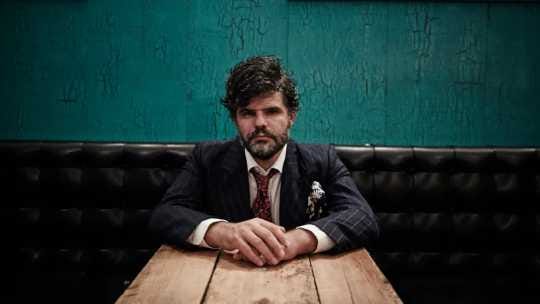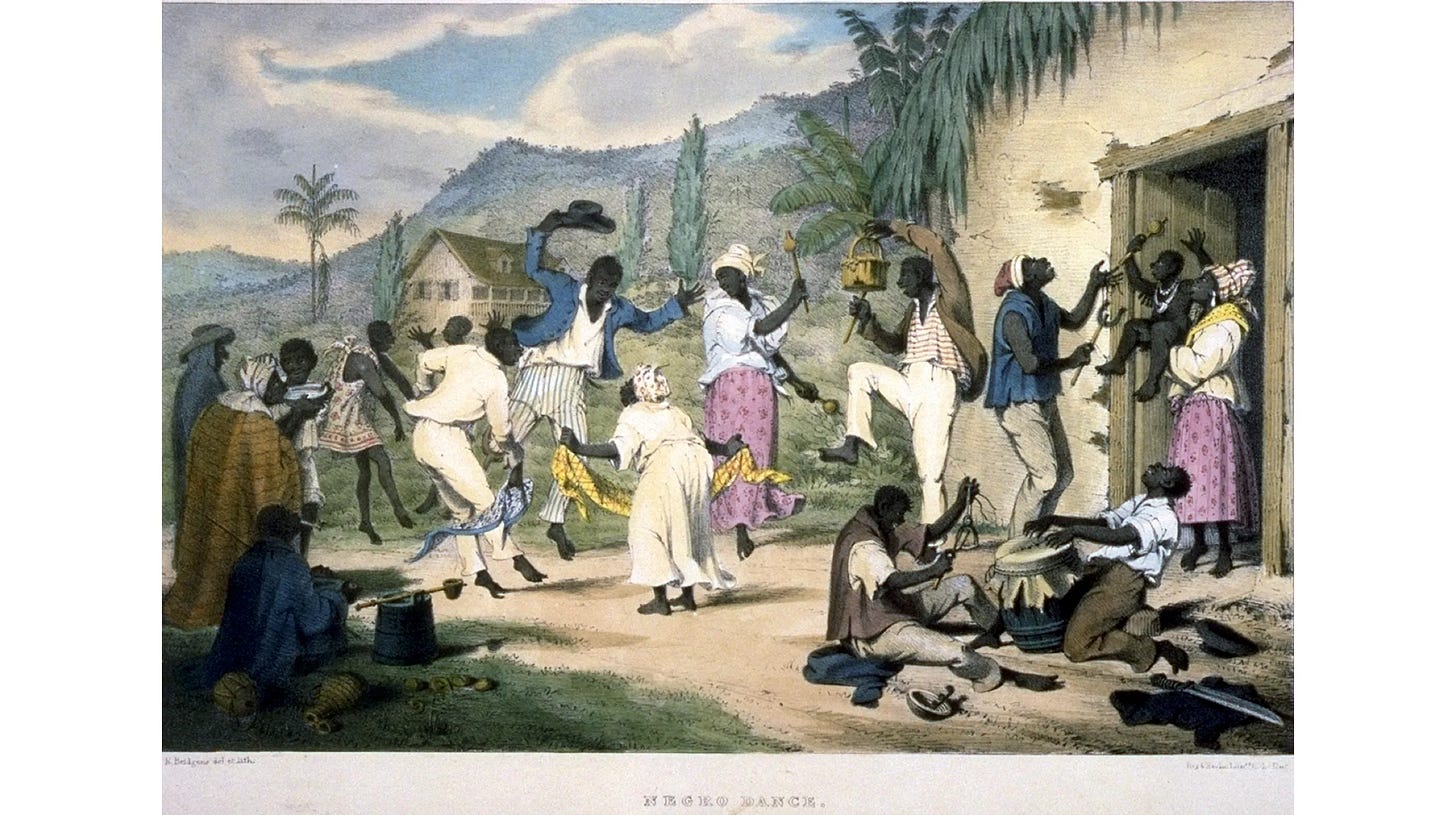Kobo Town: Carnival of the Ghosts
The European colonial adventure in the Caribbean, where the carnivalesque spirits of the dead still come out to play, gave rise to the world’s first truly modern peoples
First time I encountered Kobo Town was at a summer 2007 concert in Nuremberg’s Katharinenruine, an outdoor performance venue carved from the spectral ruins of St. Katharina Cloister, gutted by Allied bombing in January 1945. The setting was on target for the spirit of Kobo Town, casting an engaged and critical eye on the cultural, socioeconomic, and political ruins, a heritage now globally manifest, of the European colonial adventure, ricocheting today from the Old World to the New and back again.
Singer-songwriter and multi-instrumentalist Drew Gonsalves is a Trinidad native transplanted in his teens to Toronto, where he studied history and in 2004 founded Kobo Town. Inspired by the Trinidadian Kaiso (calypso) tradition of such definitive purveyors as Neville Marcano “Growling Tiger” and Calypso Rose (with whom Gonsalves and the band have collaborated), Gonsalves pens most of Kobo Town’s material. Carnival of the Ghosts, the combo’s fourth release, delves into the universal metaphysical vein that runs through all their work.
Recorded and mixed by visionary producer Ivan Duran (Stonetree Records), with support from members of the Garifuna Collective of Belize and Honduras, Carnival of the Ghosts explores the knockabout carnivalesque, preening conceit, and illusory character of the human endeavor. As Gonsalves relates in the album notes:
While much of my writing has been inspired by the history that has shaped the Caribbean and its diaspora, leaving its marks and scars in all our manners and doings, this album takes a wider look at our human condition—here the lingering past is not just beneath the surface of the present, it is also something we are all quickly becoming part of.
Anthropologist Sidney Mintz’s observation (in Caribbean Transformations) comes to mind that the region’s violent cultural encounters gave rise to the world’s first truly modern peoples. Indeed, today’s world has been shaped by involuntary displacement, chattel slavery, socioeconomic and political subjugation, ubiquitous violence, structural inequality, and the predatory drive of global capitalist accumulation.
Folk roots run deep in the music of the English-speaking Caribbean, where jumbies (an elusive cadre of jokers, flaneurs, Cassandras, and malevolent spirits) still animate oral lore. Kaiso’s trickster stance instigates a no-nonsense popular sensibility that punctures human foibles and the boundless capacity for narcissism, pretense, megalomania, and self-deception. As Gonsalves observes, the calypsonian “is a singing newspaperman commenting on the events of the day, with an attitude halfway between court jester and griot.”
Take “Hidden Hand,” referencing the Masonic hidden hand, invisibly playing human history with satanic intent and Adam Smith’s Wealth of Nations. In neo-Shakespearian fashion the singer intones, “The hidden hand is the ghost of the age / The hand that holds the pen that writes the lines on the page / That holds the scripts and directs the play / That waves the actors on and off the stage.”
“Shades of the Living,” the opening track, sees humans as living a ghostly, hyper-individualistic existence with no sense of greater purpose or communal belonging: “Everyone is an island in a sea no one can name / On that silent journey through the underground.” It relates the singer’s “dreadful dream” of awakening at carnival after fainting when “the spirits of the dead come out to play.”
The inspired musicality and ethical compass of Carnival of the Ghosts moves within the magical-realist realm of Orpheus and the tormented hungry ghosts of early Buddhism: humans marginally alive, bedeviled by desire, envy, jealously, and greed under the lurking shade of mortality. Ditto the Greek myth of Tantalus, chained in the underworld under a fruited tree that eludes his grasp, in water that recedes whenever he attempts to drink. As the closing track “Along the Way” observes, “We have been clawing / scratching at our cage / we wore ourselves out wrestling / with the spirits of the age … let us step outside the madness.” From the brave new realm, Carnival of the Ghosts flags a duplicitous netherworld that reminds us pointblank of our implication in just-so narratives of history and privilege, and the crowning vanity of all worldly pursuits.





